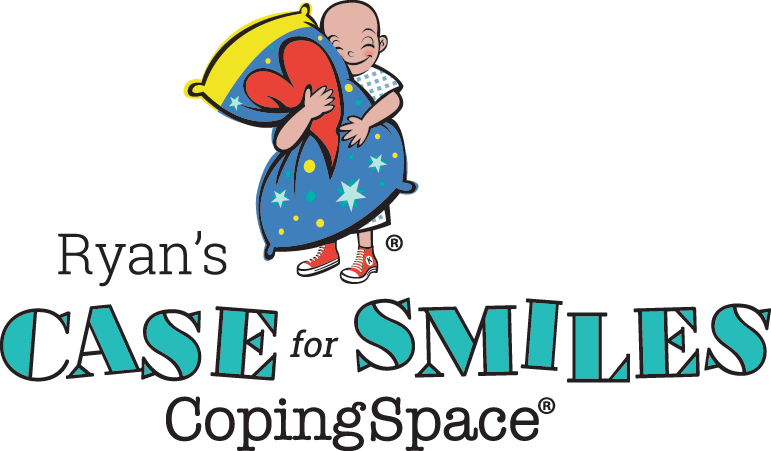BLOG
How to Keep Siblings Connected During a Hospital Stay
January 25, 2020
 One of the hardest parts of in-patient treatment isn’t necessarily the scary tests or painful medical procedures; it’s being separated from those you love. This is true for the entire family, as parents and caregivers often stay with the ill/injured child while the rest of the family must go to work and school, and take care of things at home. The separation can be especially hard on siblings, who already have many difficult emotions to navigate including jealously, guilt, confusion, anger, fear and sadness.
One of the hardest parts of in-patient treatment isn’t necessarily the scary tests or painful medical procedures; it’s being separated from those you love. This is true for the entire family, as parents and caregivers often stay with the ill/injured child while the rest of the family must go to work and school, and take care of things at home. The separation can be especially hard on siblings, who already have many difficult emotions to navigate including jealously, guilt, confusion, anger, fear and sadness.
While regular visits can help, there are often times when it’s simply not possible. Work and school responsibilities, long distances, and lack of transportation all play a role. Additionally, during this time of year, flu season, hospitals may restrict visitors even more. In some areas of the country, the amount or age of visitors are limited, leaving siblings out in the cold.
Helping Children Stay Close While Apart
Fortunately, with today’s technology and a little creativity, there are many ways to help siblings feel connected even when circumstances keep them apart. The possibilities are endless and can be as unique as your children’s relationship. All that really matters is that they still feel they have each other in their lives. Below are just a few ideas to get started.
Maintain Regular Contact
When children are at home together, it’s easy to stay connected and up-to-date. When circumstances keep them apart, it takes a concerted effort. Luckily there are many ways to keep in contact regularly. Video conference systems (Facetime, Skype, Zoom), texts, phone calls, social apps and even old fashion letters can help siblings feel like they’re still involved in each other’s lives.
In addition to the normal conversations they might have at home, children could share photos of things they see and do throughout the day. This can be a great way to help siblings feel like they are along for the ride. Or they might pass jokes back and forth, and share funny things that happen. It can be a fun contest to see who can make the other laugh the hardest (and a nice break from the stress of treatment).
For those who struggle to make conversation in the moment, a joint journal is a great option. One child can write notes or share stories as they come, then send it to the other to do the same. The exchanges may be a bit slower but can be richer as a result.
Play Across a Distance
Another great way for children to feel close is to continue playing together, even when they can’t be in the same room. While video games sometimes have a bad name among parents, they do provide a platform to play with anyone, anywhere. Online games and gaming systems, like Nintendo Family, are often accessible in hospitals and can be a great distraction during the treatment process. There are many different varieties, and most allow your children to talk together as they play. Just be sure you are comfortable with the content, and pick a game appropriate to your children’s ages.
Traditional games work as well. Have your children pass back and forth a book of crosswords or puzzles to solve together. Or you can video conference a board game if you have two sets. This idea works for most types of play in fact, though it can be awkward at first. But once your children get into a game of pretend, they may not even notice the other is actually in another room.
Exchange Gifts and Special Objects
Gifts and special objects can provide a tangible way for siblings to keep the other near. The best gifts are those that are personal. Recordable storybooks allow children to not only share stories but send a special message. Stuffed animals are also a great choice, as they often provide some comfort. Some children choose to swap beloved favorites. Others might prefer to buy a matching set.
Another option is for children to assemble care packages for each other, just like they would if one was away at camp. A box of favorite snacks, small games or toys, and notes or drawings are a nice surprise, as well as a way for siblings to show they really know each other and care.
Homemade gifts can also be very special. Creating drawings to decorate each other’s space is a fun activity, and the result provides a visual reminder that their sibling is thinking of them. Song playlists are also a good option, as music has been shown to have a powerful effect on our emotions and well-being.
On most music platforms, it’s easy to collect and share favorite songs. Your children might each make a custom mix for the other, or they could work together to create one filled with music they both enjoy. It could include new songs to explore, or old favorites tied to special memories. The children can then listen to this music when they’re anxious, lonely or just need a distraction, and feel like their sibling is there.
Share Memories
One of the wonderful things about siblings is that they know you for all, if not most, of your life and share many of the same memories. Take advantage of this special bond by having your children create memory boxes. Each decorates a container however they like, then writes down some of their favorite memories. These can be about anything and from anytime in the past – something as small as getting a favorite type of pizza, or more significant, like a sibling’s birth or major family vacation.
The children can then swap boxes and keep them close for times when they need a little pick-me-up. If they feel sad, scared or lonely, they simply open the box, pull out a note and think back to a better time.
Another option is to save these boxes for when siblings are reunited. They can then include things that happen when they are apart and later share the memories together. Either option is sure to bring a few smiles and even some laughs.
———
It is undeniably hard for families to be apart, especially during difficult times. And as always, it’s important to keep an eye out for signs that your children are not adjusting well. (Visit our Siblings and Children pages for warning signs, as well as ways to help each of your children cope.)
However, as you can see, there are many ways to keep the sibling relationship close. Hopefully, this list gives you a place to start and your entire family is reunited soon.
